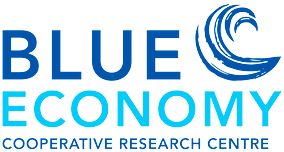- Ocean energy is poised to play a key role in the global energy landscape and by 2050, forecasts a global total installed capacity of 300GW and generate 680,000 jobs worldwide.
- Ocean energy leaders from around the globe will meet in Melbourne at the 2024 International Conference on Ocean Energy (ICOE 2024), the first time this key ocean energy event has been held in the Southern Hemisphere.
- The event has attracted national and international leaders, innovators, investors, scientists and technical experts in ocean energy from the USA, Europe, Singapore, China, Indonesia, Australia and New Zealand who will showcase recent technologies, projects and innovations in ocean energy.
- Australia’s boasts significant ocean energy potential with the largest ocean wave resource of any country in the world. ICOE 2024 will highlight our active ocean energy projects and capacity to lead in the ocean energy space with the launch of the Blue Economy CRCs Australia’s ocean wave energy report.
The 2024 International Conference on Ocean Energy (ICOE 2024) will be hosted in Melbourne from the 17th – 19th September. Hosted by the Blue Economy CRC and supported by the Melbourne Convention Bureau, the Victorian Government and Tourism Australia’s Business Events this marks the first time this global marine energy event will be held in the Southern Hemisphere.
The event boasts national and international leaders in Ocean Energy with an impressive lineup of keynote speakers and delivers a comprehensive program designed to drive the ocean energy agenda forward and continue to chart Australia’s strategy towards net zero.
This bi-annual conference, sponsored by the International Energy Agency’s Technology Collaboration Programme on Ocean Energy Systems (IEA-OES) follows the release of its groundbreaking publication, “Ocean Energy and Net Zero: An International Roadmap to Develop 300GW of Ocean Energy by 2050”, outlining a comprehensive strategy that will drive global development of ocean energy. It forecasts a global total installed capacity of 300GW and is expected to generate 680,000 jobs, contribute $340 billion in gross value added (GVA), and prevent over 500 million tonnes of carbon emissions, underlining the sector’s potential to drive socio-economic growth and combat climate change.
IEA-OES Chairman Matthijs Soede remarks,
“The sector is making concrete progress. I would like to call global stakeholders to join forces in pursuing innovative sustainable energy solutions. It is an invitation to policymakers, researchers, and industry leaders to accelerate the development of ocean energy technologies through informed dialogue and concerted policy actions.”
Australia boasts significant ocean energy potential with the largest ocean wave resource of any country in the world. Thanks to its extensive coastline exposed to the energetic southern ocean, the total energy delivered by ocean waves to Australia over a year, is estimated to be ten times greater than the current annual national electricity generation. With Australia’s target of a 43% emissions reduction by 2030 and net zero by 2050, the ocean energy sector has a pivotal role to play.
As Henry Jeffrey, IEA-OES delegate for the UK states,
“Both wave and tidal stream have a key role to play in the global energy transition. Sustained market support, coupled with the optimal balance of innovation funding, are vital for the wider sector to achieve its full potential and enable it to unlock a range of socioeconomic, energy system and environmental benefits”.
Australia’s active ocean energy projects will take front and centre, including Carnegie Clean Energy’s Moorpower and CETO technology, the University of Western Australia’s Marine Energy Research Australia M4 Wave Energy Converter and the Australian Maritime College (AMC), Australia’s National Institute for maritime education, training and research. Research from the Blue Economy CRC led by the University of Western Australia will launch Australia’s Ocean Wave Energy Report, and how with our capacity as the world’s largest national wave energy resource, are well placed to lead in the ocean energy space.
As Jonathan Fievez, CEO of Carnegie Clean Energy states,
“As the US and Europe ramp up support for wave energy, Australia has an ever-reducing window of opportunity to take a strategic view and build sovereign capability in the last untapped renewable resource, the waves. Carnegie is a leader on the world stage and, along with other Australian players, are a testament to the engineering capacity that can be bought to bare on this challenge. If supported, the Australian wave energy sector can foster a new industry bringing employment and prosperity.”
The 2024 International Conference on Ocean Energy will run from Tuesday through to Friday and more information can be found at https://icoe2024melbourne.com/






